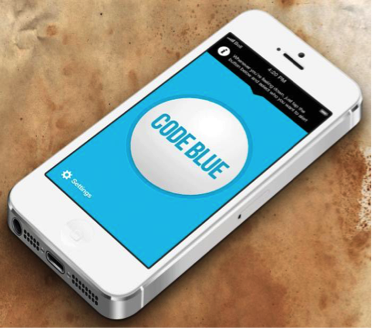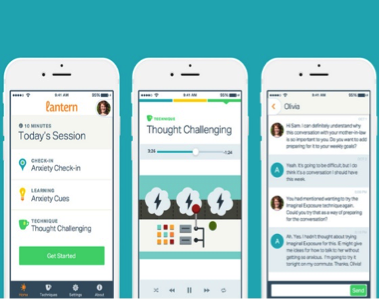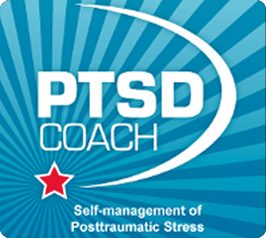As a young clinical pharmacist and counselor, the frequency of prescriptions and counseling sessions for mental health patients was alarming. One in four adults, approximately 61.5 million Americans, experience mental health disorders in a year. It’s prudent to mention that this figure does not include hundreds and thousands of patients battling with mental disorders which go unnoticed or undiagnosed. The array of mental health disorders is vast and this makes diagnosis and patient compliance a challenge; from serious disorders such as schizophrenia, bipolar disorders and major depression to seemingly less impactful disorders such as anxiety, stress induced depressions and insomnia.
Today, mental disorders are not limited to any age, race, religion or gender. About 90% of suicide victims suffer from mental illness. Every family has a family member who is either suffering from a mental illness or has been lost to one.
Digital technology has connected us in ways unimaginable before. It also has immense potential to transform mental healthcare in new innovative ways leveraging health data and our almost constant connect with technology. Digital online and other such mobile applications can offer patients greater access to information and services and enhance clinical management and early intervention through access to real-time patient data. However, substantial gaps exist in the evidence base underlying these technologies. Greater patient and clinician involvement is needed to evaluate digital technologies and ensure they target unmet needs, maintain public trust and improve clinical outcomes. It’s important to understand how mental health patients are perceived in modern society, with bias and criticism in their way, it’s not easy for patients to come out openly and talk about their challenges in an open forum. Unfortunately, with increasing bias about mental health in our society, more and more patients refuse counseling sessions. In my opinion, this subgroup of patients need to be treated differently. They need to be empowered to use a medium which is accessible and protects their identity.
Digital health can have a strong impact on mental health patients and potentially, that’s the reason for alarming number of applications available today for improving compliance or in general well-being of mental health patients. These apps can be helpful as a way to engage people who may be unwilling or unable to attend face-to-face therapy, and they can also provide support in between sessions. Experts believe that these apps will work best when used in conjunction with medication and/or in-person therapy.
Related articles: “APPS FOR MENTAL HEALTH- DO THEY ACTUALLY HELP?“
“THE COLLEGE STUDENT MENTAL HEALTH CRISIS: WHAT CAN WE DO NOW?“
Some of the apps which are targeted towards improving lives of mental health patients are listed below:
Launching in Spring 2016
Helps provide support real-time peer and professional support to young people suffering from depression. Winner of 2014 Mobiley Awards, this app will alert the support group that the user needs immediate help. Members of the support group can then text or call the user. The app can also share the user’s location with the support group, and members can indicate that they are on their way to see the user in person.
A free app with high ratings in both iOS and Android platforms monitors breathing pattern of individuals and helps to modify breathing technique
Users highly recommend this app with recommendations such as: “This is the best breathing app I have found.” “Recommended by my physical therapist.” “This great app is a must on all my devices!”
This Subscription based service provide effective, affordable support for emotional well-being. Cognitive behavioral therapy (CBT) with advice from real experts through a mobile platform.
It has a web based platform and can amend plans based on patient’s condition and awareness.
Available for both IOS and Android devices, this app developed by the Department of Veterans Affairs’ National Center for PTSD, intended for use by veterans, military personnel, and civilians experiencing symptoms of post-traumatic stress disorder. It provides a self-assessment tool that allows users to track symptoms over time (though it does not clinically diagnose PTSD) as well as tools for managing symptoms.
Users can also store contacts for personal support, locate nearby treatment programs, and contact the National Suicide Prevention Hotline quickly in emergencies
Wearing different hats as healthcare practitioner or as a public health professional, it’s apparent that by just providing novel medicines, counseling or family support, we can’t transform the health of patients suffering from mental health disorders. It is determination of an individual and support from society which transforms lives.
Digital technology has a wide outreach, and high success rates in penetrating the most challenging of communities, however, it is not without its share of challenges. Many of the apps have a subscription fee which might not be feasible for many patients, considering that low socio-income has strong correlation with mental health disorders. There might be technological challenges, in particular with geriatric patients and patients suffering from other chronic or debilitating diseases which lead to some of the most challenging cases of mental disorders. Very recently, one of my patients who is suffering from Huntington’s disease, a rare form of genetic neurological disorders which hits a healthy person out of blue and transforms lives in matters for months, mentioned that it’s not depression which troubles her at night, it’s the thought that even if help is available, will she be able to use it? She is not in isolation. Many mental health patients suffer from challenges such a tremor, fits and transient loss of motor coordination. These patients find it difficult to manage basic functioning of their phones or laptops, navigating through sometimes complex apps might be completely out of their realm.
Another interesting aspect are the challenges faced by mental health patients apart from the apparent and scientifically understood neurological effects. Patients suffering from mental health disease are challenged by even small and seemingly mundane tasks such as brushing teeth or bathing, and potentially some of the apps can help such patients to maintain a regular rhythm. Another app which is extremely beneficial for patients with mental disorders is Water Logged. Dehydration is any form, either natural or as a side-effect of medicines that aggravates any disease. This app charts and reminds the user to drink enough water and keep the body hydrated. Similarly, there are apps for pill reminders such as MedCoach, which reminds the user about their medications and dosage with timed notifications.
A very frequent challenge faced by healthcare practitioners is about dose titration or changing the dose of medications based on a patient’s health. This challenge is amplified with mental illness patients because of their dependence on these medications and thus, such apps which record the dosage of the medications and transmits it to healthcare physicians can aid significantly in reducing withdrawal symptoms and improve compliance.
Digital technology is not the best solution for treating mental health disorders, however, it’s an aid which can help in transforming lives of millions of patients who suffer in isolation. An aid which improves access to healthcare, family and society support is in particular boon for mental health patients. We can only hope that with advancement in technology, there are better innovations targeted towards this sub-population which is vulnerable and desperately needs support.















